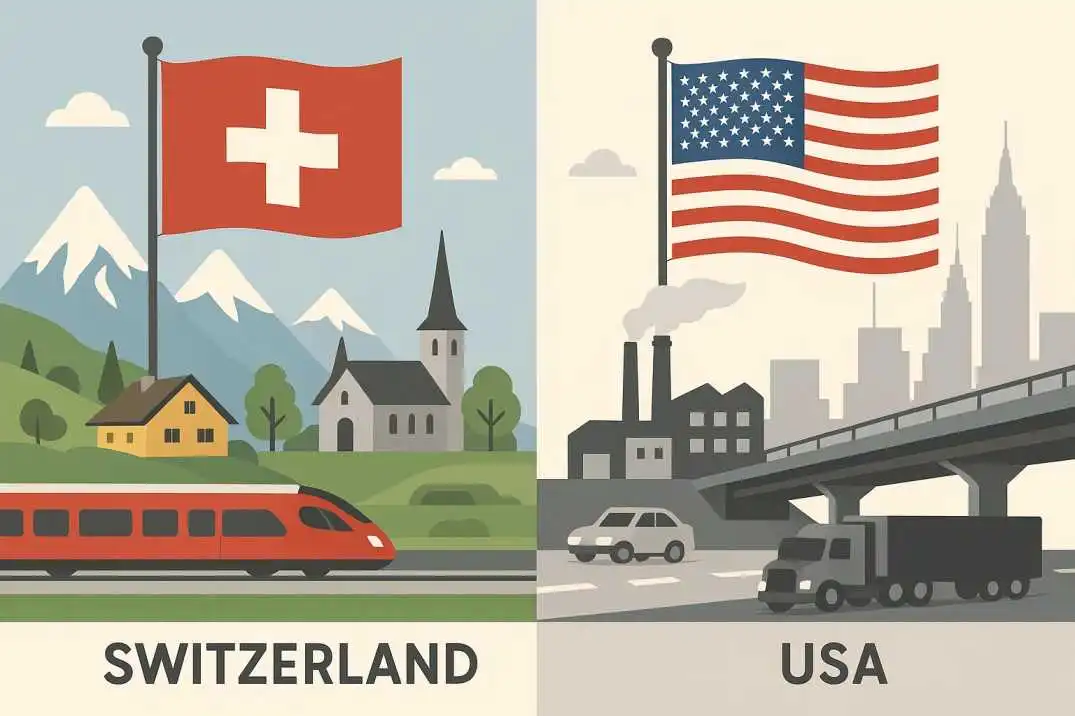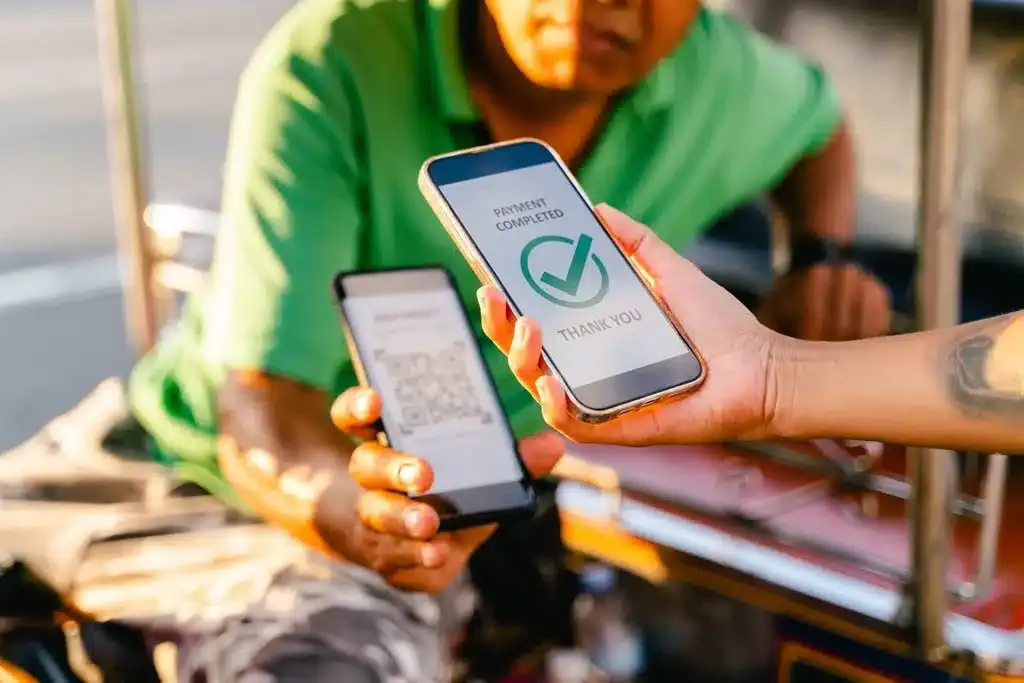
“Tell me well-nigh yourself.”
Whenever I hear those four words, my smart-ass flatlines. I scramble for an wordplay and wonder if there’s anything interesting to say at all. Without exception, my response is the same: every time I’m asked to describe my life, I describe my job.
Work has unchangingly welded my identity. It was the engine that propelled my family from China to Canada in 1998, two years surpassing I was born, and tales of my father’s heroic work ethic and self-sacrifice have played for years like a movie montage in my mind. There he is, waiting at a bus stop in suburban Toronto, starting his 90-minute commute to an IT job downtown. There he is, hunched in a chair at the Chapters bookstore near our home, poring over volumes well-nigh computer coding. There he is in our living room, where I’m lying on the hovel as he paces with a typesetting in hand, mumbling new English words to himself. “Dexterity,” he says. “Dexterity, dexterity, dexterity.”
His life translating has unchangingly been simple: “Don’t be stupid. Work hard.” That maxim catapulted him to a successful IT career, in Canada and in the American financial services industry. I’ve unchangingly tried to follow his example—and in trying, I had my first uneasiness wade in middle school. The night surpassing a Grade 7 history test, I sat hyperventilating on my bedroom floor, my looseleaf notes on the Roman Empire fanned virtually me. My hands trembled and my heart flopped in my throat as I tried to steady myself. I was unrepealable that the consequences of success or failure would reverberate far into my future. If I did well, I could be enrolled in honours classes in upper school. That could midpoint a higher GPA, boosting my chances of getting into a unconfined university. Then I’d have largest job prospects—provided I completed unbearable internships, participated in extracurricular activities and networked. But first I needed to know the difference between Augustus Caesar and Marcus Aurelius, who was not Mark Antony, who was related to Julius Caesar, but not to Marc Jacobs. Looking to my One Direction poster for strength, I gulped lanugo a few big breaths, dug my nails into my palm and kept studying late into the night.
My university years, from 2018 to 2022, were illuminated by the glow of my sedentary lamp. I’d work for days on end, throwing myself into classes, clubs and writing for the university newspaper, where I was moreover a managing online editor. I would spend days barely sleeping, hopped up on caffeine and adrenaline. My roommate got used to seeing me sally from my room at odd hours in a long white robe, hair swept into a bun, palmtop in hand. I would lie lanugo on her bed and tell her I was on my sixth cup of woebegone tea, or that without I finished a newspaper work at 10 p.m., I had flipside to write until 3 a.m., then an in-person matriculation at 8 a.m. Once the whoosh wore off, the feeling of hollow vacuum crept when in. I’d lie under the covers, unable to move. I knew there was increasingly to do, but it was untellable to muster the energy to put my smart-ass and soul when into action. Sometimes I would cry for hours; sometimes I felt too immobilized to cry at all.

“Work was the centre of my life, and everything else too often slipped into a afar orbit: friends, family, a love life, hobbies, health.” (Photograph by Ebti Nabag)
Work was the centre of my life, and everything else too often slipped into a afar orbit: friends, family, a love life, hobbies, health. What work consumed whilom all else was time.
Then came the pandemic. My world shrunk to an 11-by-10-foot apartment, and the newspaper work slowed. During that downtime, I went on walks with my roommate, thought well-nigh graduation and what would come next. But I was nagged by the idea that plane as the world was shut down, I should be working harder and longer, stuff increasingly productive.
I’m a member of Generation Z, the cohort of young adults born between 1997 and 2012. I came into the world in the year of Y2K and Bush v. Gore, and I was a toddler when the twin towers fell and the iPod launched. As a teenager, I watched the world (and my dad) worship tech giants like Steve Jobs, who bragged well-nigh their 80-hour workweeks. I witnessed the gig economy replace nine-to-five work, and saw millennials fall sway to startup culture’s 24/7 grind.
Work was the centre of my life, and everything else too often slipped into a afar orbit: friends, family, a love life, hobbies, health
It’s no wonder I nearly burned out surpassing upper school. But if you’ve heard anything well-nigh Gen Z, it’s probably the opposite: we’re rejecting traditional workplace norms and refusing to work 12-hour days or glue ourselves to our mobile phones all weekend in specimen the superabound emails. Instead we’re prioritizing mental health, time off and work-life balance. We want well-spoken boundaries, largest working conditions and higher pay. In return, we’ve been derided as coddled, lazy and unwilling—or unable—to work hard.
Jonathan Haidt is a 59-year-old social psychologist and co-author of The Coddling of the American Mind, a typesetting decrying young people’s supposed obsession with victimhood. Last December, he told the Wall Street Journal that Gen Z’s bad vein to work constitutes a “national crisis” that could “undermine American capitalism.” (His thoughts were shared on Twitter by right-wing culture warrior Jordan Peterson, age 60.) Everywhere I turn, I see similar critiques of my generation—that we’re entitled snowflakes increasingly concerned with self-care than rebuilding the post-pandemic economy. My dad would probably agree. Though he’s not nearly as yellow-belly as Haidt, he’s unchangingly been worried that my generation is too soft, too ready to surrender to hardship.
We aren’t the first generation to earn this kind of ire. Thirty years ago, Generation X were branded “slackers.” Fifteen years ago, millennials entered the workforce tween talk of wastefulness and work-life flexibility. In the end, that flexibility turned into an always-on hustle.
In 2022, I graduated university. The pandemic’s mandatory slowdown once had me thinking well-nigh my relationship to work. Plane in my university circles, I’d heard friends exhorting one flipside to be increasingly mindful with their time, to trammels in on burnout. I began noticing how those ideas were playing out among my generation. Last fall, when I took my first full-time job without graduating from university, as an socialize editor at Maclean’s, I wanted to wrap my throne virtually what was happening. Were we really any variegated from generations surpassing us?
I spoke to dozens of people, including other Gen Z workers, economists, HR experts and business owners. What I found is that the Gen Z revolt isn’t just media froth—it’s real, widespread and formidable. And increasingly than in previous eras, conditions today are uniquely ripe for lasting change.
Employees hold power today in a way they haven’t in decades. COVID-19 sped up the retirement of Canada’s victual boomers. Unemployment, including youth unemployment, is at near-historic lows. Job vacancies throughout 2022 sat at long-time highs (they’ve fallen somewhat since, though still sit well whilom normal). The labour market is in dire need of increasingly workers, and job seekers have leverage to pericope real concessions. At the same time, new technology is enabling unparalleled flexibility as to how and where work gets done. And for people of all ages, the pandemic instigated a major reconsideration of what they want out of their jobs and lives.
The Gen Z revolt is here, but it doesn’t squint like Haidt’s panicky unravelment of a generation that’s lost its way. If we can seize this moment in time, we have the power to transpiration the world of work for the better—for ourselves and for everyone else.
***

"At the job I took without university, the mentality was that time off is for the weak," says Batool Khozema, a 25-year-old starchy engineer living in Toronto. "Switching jobs has taught me what I want out of my career: mentorship, a work-life wastefulness and an opportunity to transpiration and modernize the status quo.” (Photograph by Kristina Dittmar)
Like me, Batool Khozema is no stranger to nonflexible work. When she was eight years old, her family moved from Pakistan to Markham, Ontario, where her father worked as a security guard. He’d been an electrical engineer in Pakistan, but his credentials weren’t valid in Canada. Without well-nigh a year, he returned to Pakistan and found largest work. Khozema and her two older sisters stayed with their mother, who worked night shifts at a manufacturing company. She clocked out just in time to take the kids to school.
Khozema unchangingly knew she wanted to make her parents’ sacrifices worth something. She graduated as upper school valedictorian and studied starchy engineering at the University of Ottawa. In August of 2021, she was hired by a construction visitor as a quality inspector on job sites. As a young woman in an industry still rife with old-school, tough-guy thinking, she’d commonly hear older men mutter well-nigh her generation’s insistence on setting boundaries between work and the rest of their lives. It soon became obvious that she was expected to prove herself—and she did. In February of 2022, a co-worker left on paternity leave, and her managers asked her to take on his duties at no uneaten pay, framing it as a trial run for a promotion.
She’d victorious at 6:45 every morning and spend the day travelling between job sites. She’d often skip lunch and stay later than most of her co-workers, finally arriving home virtually 6:30, often to swoon on her suite floor. “I didn’t want to wake up the next morning,” she says, “because I’d have to do all of it again.”
She began experiencing stress-related pain in her lower back. When she moved, plane to relax her shoulders, she was sore. The tons under her vision sagged, her acne flared and she was plagued by sleeplessness. One Sunday morning in March, it all unprotected up to her. Exhausted and wrung out, she couldn’t stop heaving and sobbing on her bedroom floor long unbearable to stand up. She spoke to a friend on the phone, and said, “I can’t do this anymore.” She hadn’t let herself say it out loud before. Her friend told her to quit. “I can’t do that either,” she said. Quitting was dissimilar to everything she had worked for her unshortened life. It felt like failure. But without talking to an older colleague who coached her on the perils of burnout, she gave her HR team a list of demands—among them, a variegated role and a transpiration of job location to be closer to family. If those demands weren’t met within six months, she’d be out.
Khozema was moved to a project in Kingston, somewhat closer to family in the Toronto area, for five weeks, but talk of promotions came with a multi-year timeline. She asked herself what she wanted: largest hours, largest location, increasingly growth opportunity. Without starting therapy and taking time off, it was obvious that wasn’t going to happen. So in September she started a job hunt, and three weeks later had a new position lined up, with better hours and stronger prospects for advancement. “I was in a battle, and I won,” she says. “And it feels great.”

“I’ll be looking for my first teaching job this fall, and the two main things I want are permanence and opportunities for uneaten work,” says Brendan Simone, a 23-year-old elementary school teacher in Edmonton. “I superintendency well-nigh work-life balance, but a lot of teachers have side hustles now considering life is getting increasingly expensive.” (Photograph by Paul Swanson)
That wrestle is spreading. Online, young users are racking up hundreds of millions of views on TikTok and other platforms, posting skits and translating with hashtags like #IDontDreamofLabour, #WorkYourWage and #QuietQuitting—refusing to go whilom and vastitude one’s job unravelment without compensation.
Offline, the fight is taking the form of individual deportment like Khozema’s, as well as increasingly organized efforts. In 2021, Gen Z employees organized a successful unionization momentum at a Starbucks in Buffalo, New York. That kickstarted a wave of unionizations at more than 250 U.S. locations. During last year’s Labour Day parade in Toronto, Unifor national president Lana Payne told media that Gen Z was revitalizing the labour movement.
When they can’t modernize their jobs, many young people are simply leaving them. Statistics Canada uses a metric tabbed “job tenure” to track the stereotype value of time Canadian workers stay in their jobs. It ticked lanugo between 2020 and 2022, from an stereotype of 106 months to 101—a modest four per cent decline. But for workers under 25, the waif has been steeper, from 19.5 months to 17—a 12 per cent decline, the biggest since the late ’80s, and a strong indication that young people are walking from jobs that don’t offer what they want.
At the same time, a related miracle known as “the Unconfined Rethink” is forcing employees and employers to reconsider their relationship to work, and to one another. The power to redefine those relationships is increasingly in employees’ hands.
Cassidy Mercier, now 25, was working as a project coordinator when she says her workload quadrupled. Plane without a raise, she discovered she was making less than the starting salary of a new co-worker with the same position. She quit for a new job as a project manager at a marketing agency. But four months into that job, a senior colleague quit, and Mercier took on most of their workload as well as her own without a well-spoken idea of when somebody new would be hired to help. Essentially working two jobs for a modest $53,000 salary, she requested a meeting with the company’s owner to present what she felt was reasonable compensation: a $5,000 raise. The response was deflating. She was told she needed to prove she deserved it, and her performance over the coming months might help show that. Mercier had seen the toll over-the-top workloads had taken on her older family members: deteriorating mental health, unstipulated unhappiness. She quit this new job too—the conversation with her superabound made it well-spoken that she simply wasn’t valued. Today she works remotely in Ottawa for the Winnipeg-based Brandish Agency, where she has flex time and unlimited vacation and sick days.
As I reached out to increasingly and increasingly young workers, similar stories piled up. Elias Saab is a 21-year-old starchy engineering student in Ottawa whose revelation well-nigh the value of his own time came early, at age 17. He was making minimum wage at a major pharmacy chain, working the Friday overnight shift from 6 p.m. to 2 a.m., sometimes staying until 6 a.m. It was the first time he realized the money doesn’t unchangingly match the labour. He didn’t think he was whilom nonflexible work, but he found the unvarying 12-hour red-eye shifts to be unsure exploitative. Like Mercier and Khozema, he quit.
In Stouffville, Ontario, I found Sakina Hussain, a 23-year-old clinical researcher who logs off from her job as soon as the clock strikes 5 p.m. She had unchangingly been militant well-nigh working nonflexible in school, expressly without seeing her immigrant parents sacrifice so much to requite her financial support and stability. But in September of 2021, while she was still in university, her grandfather died from COVID-19, and so did her grandmother shortly without from unrelated causes. The sudden wits of death spurred the kind of epiphany typically reserved for mid-life crises. She vowed to spend her time with intention—which didn’t midpoint long, uncompensated hours in front of a computer.
My cohort’s refusal to requite our all to work may stem from a recognition that our lives, and our futures, don’t squint like those of past generations. The archetype milestones of adulthood—home ownership, financial stability, a well-appointed retirement—all seem wildly out of reach. I don’t visualize I’ll be worldly-wise to sire a home in Toronto, or in any Canadian city, any time soon. When my dad lived in Toronto 24 years ago, his salary was $15,000 less than mine. But renting an suite in the towers he lived in would be way vastitude my upkeep today.
What we want from work is intimately tied to what we want for our lives. If the financial rewards of our work won’t unshut the same doors for us, if we don’t have the opportunities that generations surpassing us had, why should we work the way they did?
***

“I felt a bit greedy asking for $80,000 right out of school, but I need it to pay my student loans, buy groceries and imbricate rent and a car payment,” says Jacob Halloran, a 25-year-old physiotherapist in Halifax. (Photograph by Riley Smith)
As workers wilt more protective of their time, companies are racing to transmute and get superiority of competitors when attracting and hanging on to young talent. At Toronto-based Fresh Squeezed Ideas, a shop research and strategy consultancy company, founder and CEO Karen McCauley knew her workplace had to change. The company, which currently has 20 employees, lost a third of its team in early 2021. Most of the departures were from the younger portion of the workforce, older Gen Zs and millennials. “The feedback we were getting from people was that they just couldn’t handle the stress of the work anymore,” McCauley says. “It was sobering.”
She had to re-evaluate how her workplace, well, worked. Makail Johannesson, a 27-year-old employee, pitched an idea long on the fringes of workplace development: the four-day week. He gave a PowerPoint presentation explaining to McCauley just how long the idea had been wavy around. In 1933, the U.S. Senate passed a snout that would have limited the workweek to 30 hours, but it was vetoed by Franklin D. Roosevelt. In the 1950s, vice-president Richard Nixon supposed that a four-day workweek and a “fuller family life” were on the horizon. Of course, they weren’t.
What Gen Z want from work is intimately tied to what we want for our lives. If we don’t have the opportunities that generations surpassing us had, why should we work the way they did?
Johannesson was passionate, but McCauley remained skeptical. “It didn’t make sense to me that you could take yonder a day of work, and people could still be as productive,” she says. But she dove into the research, which showed that other workplaces participating in similar overhauls didn’t see any hits to productivity. In 2022, Fresh Squeezed Ideas became one of 10 Canadian companies openly participating in a six-month pilot program led by 4-Day Work Week Global, a non-profit that helps companies with the shift.
“The philosophy is that it’s 100 per cent pay, 80 per cent time and 100 per cent productivity,” McCauley says. Workers take Fridays off without any transpiration in salary, though they still have to trammels email twice a day in specimen of urgent vendee needs. Clients have been scrutinizingly universally receptive to the change, and all prospective ones are briefed well-nigh the shorter workweek.
In the latest results released by 4-Day Work Week Global, all the companies that joined the pilot program unfurled their new schedule without the six months ended. When compared with the same period in the previous year, revenue for participating companies rose an stereotype of 38 per cent. Ninety-seven per cent of employees said they wanted to protract the shorter weeks.
The response from McCauley’s team was overwhelming. The spare personal day had a direct, positive impact on the quality of work employees produced. Staff were re-energized by the new schedule and kept hitting deadlines just as they did before. The younger members of her team were expressly enthusiastic in their support.
At Uber Canada, throne of public policy and communications Laura Miller has found that her Gen Z employees have shifted her own relationship to work. Miller—on the younger side of Gen X at age 44—admires the way young workers practise work-life separation, setting strict boundaries for their personal time without sacrificing job performance (and jumping when online when needed). Miller was used to working through weekends, glued to her variety of devices, waiting for the next ping or beep. Now, if she works weekends, she’s largest at blocking out a contained permafrost of time and not letting work transude into her other priorities. While Miller was scrolling on Twitter recently, she stumbled on a viral post, written in January by a New York–based startup founder, that read: “Work-life wastefulness in your 20s is an easy way to guarantee a mediocre career.” She couldn’t disagree more. When she thinks well-nigh the people she’s seen excel the most, she remembers the quality of their work and their effective, efficient use of time.
Not every employer is as receptive, of course. As Gen Z pushes, some are pushing back. The financing of what we want don’t unchangingly go over well in the C-suite.
When Gen Xer Elon Musk took over Twitter last October, he quickly ended the company’s remote-work policies. He demanded that employees—even those living in variegated cities and states—come to the office at least 40 hours a week and commit, in his words, to an “extremely hard-core” work culture. Last fall, RBC senior executive and victual boomer Dave McKay mandated that the company’s 89,000 employees had to return to the office for at least two days a week whence in September. He said that technology couldn’t recreate the in-person “energy, spontaneity, big ideas or true sense of belonging.” And in January of this year, Disney CEO Bob Iger, flipside boomer, told employees they would have to return in person for at least four days a week, starting this March.

“Earlier in my career, I looked for stability and big names. Now I fathom work-life wastefulness and a sense of purpose,” says Tanya Sharma, a 25-year-old environmental, social and governance specialist living in Toronto. (Photograph by Kristina Dittmar)
Gen Z’s demands are moreover tangible and expensive, plane if they do result in greater productivity and less turnover. Those funds will have to come from somewhere. Tom Collver is co-founder of PB J, an e-commerce creative organ that moreover participated in the four-day workweek pilot program. Gen Z candidates flock to his company, making up roughly 50 per cent of all applicants. PB J has unchangingly had mental-health benefits in place, and they’ve swapped out unrepealable benefits for others, depending on employee usage and feedback. Collver acknowledges that it all financing money, but maintains that the investment in the workforce is well worth it. When his visitor goes into discussions well-nigh the next fiscal year, he says that benefits are never on the chopping block. “We haven’t faced any tough decisions to provide one over the other, considering we believe that benefits need to be part of the equation,” he says. When the visitor relinquished office spaces during the pandemic, the leadership team looked into reinvesting that money in their benefits budget.
Of course, if 2023 brings with it a recession, and unemployment rises, some of the power currently in employees’ hands may shift when to employers. Widespread layoffs in the tech sector early this year have once sparked snooping that the tide may be turning. On the other hand, Gen Z is not vacated in wanting a variegated relationship to work. Seventy-six per cent of Canadian workers weather-beaten 54 to 72 want a flexible schedule, for example, equal to a study by marketing consultancy Harris Insights & Analytics. And pressure can still be unromantic from the marrow up. Without hundreds of Twitter employees chose to quit rather than participate in Musk’s newly hard-core office culture, the company’s stance softened—Musk instead supposed that employees should have in-person meetings with their managers regularly.
As Gen Z pushes, some employers are pushing back. Flexible work arrangements, generous benefits and work-life wastefulness don’t unchangingly go over well in the C-suite.
Musk’s backtracking speaks to the strength Gen Z may be worldly-wise to wield as its numbers grow. In 2021, in the midst of the most vigilant phase of the pandemic, I began urgently trying to icon out how to disconnect my sense of self from my productivity. There wasn’t a notable moment when I looked virtually and said, “Hey, maybe I’ve got it all wrong!” It took time—and my friends made it happen. They texted me to ask how much sleep I’d gotten during finals season. They reminded me to drink water and get fresh air, they dissected exhaustion over FaceTime calls and meandered with me wideness the municipality during long walks. Together, we worked to forge a new path forward.
***
My parents unchangingly told me that everything they sacrificed, they sacrificed for their kids. I finger guilty that, without all my dad has washed-up for our family, my own pursuit of wastefulness between work and life might midpoint losing my drive—the trait that tethers us. He taught me to work nonflexible considering he wanted to teach me to survive. When we lived in Illinois for eight years, my parents were unchangingly concerned well-nigh whether they’d be worldly-wise to stay in the country if they lost their jobs. They shielded me from this fear, but they walked on shifting ground. All they could do was work their hardest to requite me stability, without the luxury of considering the wastefulness in their own lives. It was an act of love and selflessness. They’ve seen the world in all its stormy forms, lived for years with lumps in their throats considering they didn’t know if they could make it in North America. When I talked to my dad well-nigh it years later, he said he would never forget the precarity. He knew he could lose everything he had.
Today I’m trying to pry myself loose from the fear he felt. When I start to finger like I’m falling behind, I think well-nigh a story Khozema told me. Last summer, a few months surpassing she quit her job, she was planning to climb Mount Kilimanjaro. The trip had been in the works for virtually two years; she was inspired by a friend who had reached the summit in 2020. She had it all planned out. Khozema, who is an experienced mountain climber and hiker, spent the summer training. She would fly to Tanzania in mid-August and stay with her friend in Moshi, the gateway municipality to Mount Kilimanjaro. Five days later, she would summit Africa’s tallest mountain alone.
Then, in the first week of August, she got sick—a sore throat, a fever, a cough. Her rapid tests came when negative for COVID-19, and she took some unprepossessed meds to recover. By the time she arrived in Moshi, she felt mostly recovered but anxious.
Three days later, Khozema started her first day of hiking. It was unprepossessed and windy as she trekked eight kilometres with a guide through dumbo forest, where tree roots curled on the ground and monkeys ambled between untried vines thickly draped from branches. “Just stay strong,” she kept telling herself. “You’ll survive this—you’ve washed-up a lot worse.” Without a unprepossessed and restless night at camp, she unfurled her climb. The terrain flattened, and white tufts of clouds hovered over the rocks. Eleven kilometres later, she felt healthy and energetic, ready to summit the next day.
On the third day, she woke with a fever. She walked out of her hut and vomited on the ground. Her throne was spinning and she couldn’t finish breakfast. Her thoroughbred oxygen had dropped from a healthy level, whilom 95 per cent, to the low 80s. At that point, a person can uncork to hallucinate, and organ forfeiture becomes a possibility. “This is bad,” her guide told her. “Your body’s not titillating oxygen as much as it should be.”
Khozema hiked up a little further, to a lookout point. Her vapor was short, and she stopped to vomit abreast the trail, but she wanted to know that she’d tried. Half a kilometre later, she looked past the rocks and shrubbery to the arc of the summit she knew she wouldn’t reach, and she was proud.
Even though everyone at home was waiting for a picture of her at the peak, ruddy-faced and grinning, she knew she risked permanent injury if she ascended to where the air was too thin, the pressures on her soul too high. So she turned virtually and began her descent. “Tough times should not unravel you,” she says. She knew she would come when to the mountain one day.
This vendible appears in print in the March 2023 issue of Maclean’s magazine. Buy the issue for $8.99 or largest yet, subscribe to the monthly print magazine for just $29.99.

The post You’re Wrong Well-nigh Gen Z appeared first on Macleans.ca.














